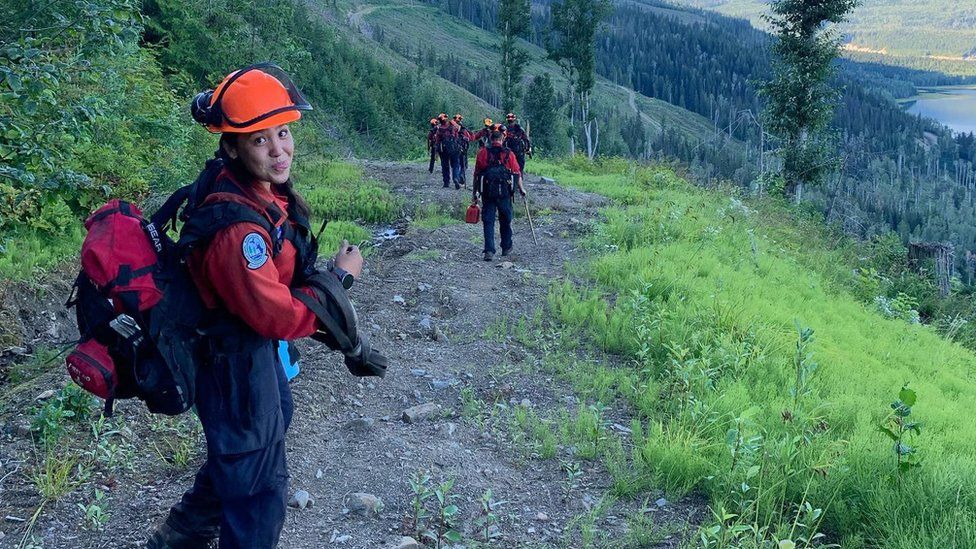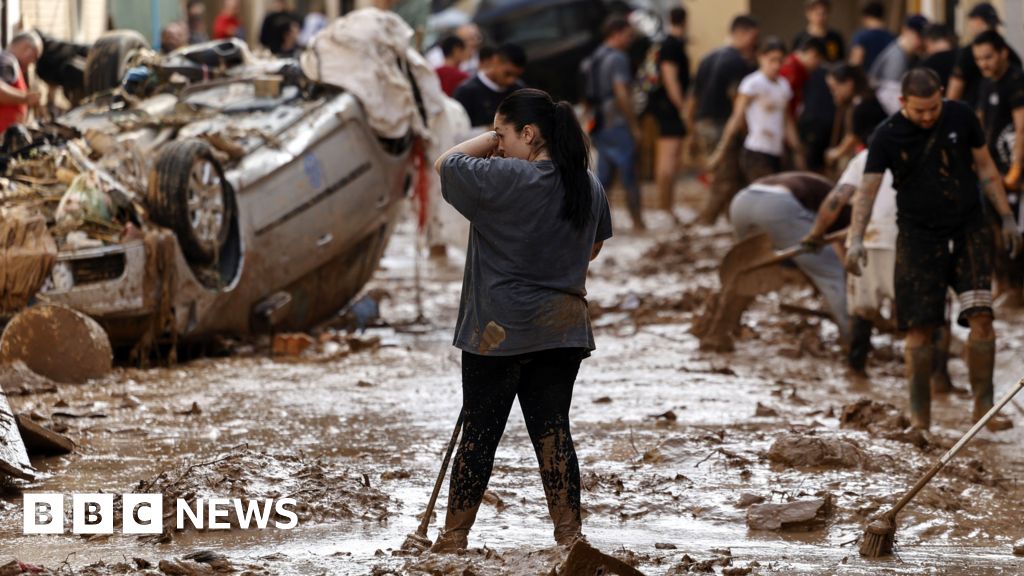ARTICLE AD BOX
 Image source, Nolan Gale/Instagram
Image source, Nolan Gale/Instagram
Devyn Gale was identified by her brother Nolan Gale in a social media tribute
By Christy Cooney
BBC News
A 19-year-old firefighter has been killed in western Canada as the country battles its worst season of wildfires on record.
Devyn Gale was struck by a falling tree while working in a remote area near the town of Revelstoke, British Columbia.
Paying tribute, Prime Minister Justin Trudeau described the news as "heartbreaking".
About 900 wildfires are currently burning across Canada, some 560 of which remain out of control.
Officials said a female firefighter had been found caught under a tree after becoming separated from the rest of her team while clearing an area of brush.
She was airlifted to hospital but died on Thursday.
It marks the first death on the ground since the start of Canada's wildfire season - and reportedly the first in British Columbia since 2015.
In a tribute on Instagram identifying Ms Gale as the woman killed, brother Nolan Gale described her as an "amazing sister".
"She was so kind and thoughtful. She was careful, considerate, hardworking," he wrote.
"I'm grateful for everything she's done for me and others, completely out of kindness with no expectation for reciprocation."
Writing on Twitter, Mr Trudeau sent his "deepest condolences" to Ms Gale's family, friends, and fellow firefighters.
"We must never forget the risks these heroes take every time they run toward the danger," he said.
So far this season, wildfires have burned more than 9.8m hectares (24.2m acres) of land, according to the Canadian Interagency Forest Fire Centre.
The figure is higher than for any previous year on record and more than three times the average for the previous ten years.
British Colombia has been one of the worst-affected areas, with 365 active fires currently burning across the province, and on Thursday put out a call for help from an additional 1,000 international fighters.
Sarah Budd, spokesperson for the British Columbia Wildfire Service, has said conditions are expected to remain hot and dry for the foreseeable future.
"We're not expecting any reprieve from the weather," she said.
Climate change increases the risk of the hot, dry weather that is likely to fuel wildfires. The world has already warmed by about 1.1C since the industrial era began and temperatures will keep rising unless governments around the world make steep cuts to emissions.
Canada is estimated to be warming twice as fast as the rest of the world and in recent years has seen extreme weather events of increasing frequency and intensity.
The wildfires have also sparked pollution alerts across North America as smoke is blown south along the continent's eastern coast.

 1 year ago
29
1 year ago
29








 English (US)
English (US)